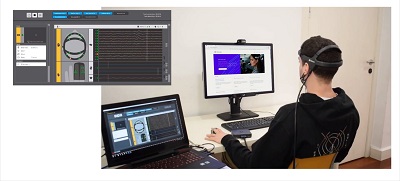Bitbrain Technologies, Spain
Bitbrain Technologies, Spain
Human computer interaction can benefit from neurotechnology in two ways : 1) as a way to interact with machines using brain activity, a.k.a. brain computer interfaces; and 2) as a window to the brain to evaluate HCI experiences based on cognitive and emotional reactions. New advances in this field are paving the path for a successful penetration in many applications and taking these systems out of the laboratory into real world settings. This spans technological companies (e.g. Facebook recently acquired control labs), the automotive industry (e.g. Nissan developed recently a brain-2-vehicle interface) or the health and wellness sector (e.g. interfaces for neurorehabilitation or cognitive enhancement) among many others.
What can be done nowadays with neurotechnology? How should a researcher use these technologies? Where should I start? The tutorial will answer these questions by providing:
The tutorial will consist of two parts:
The content of the tutorial is:

Attendees will benefit from a broad survey of neurotechnology and brain-computer interface research and they will gain experience from working with modern EEG devices, brain computer interface examples, software for data collection and for data analyses.
The tutorial welcomes attendees at all levels of experience in research or industry. There is not need of prior knowledge as the tutorial will be self-contained.

Javier Minguez

Luis Montesano